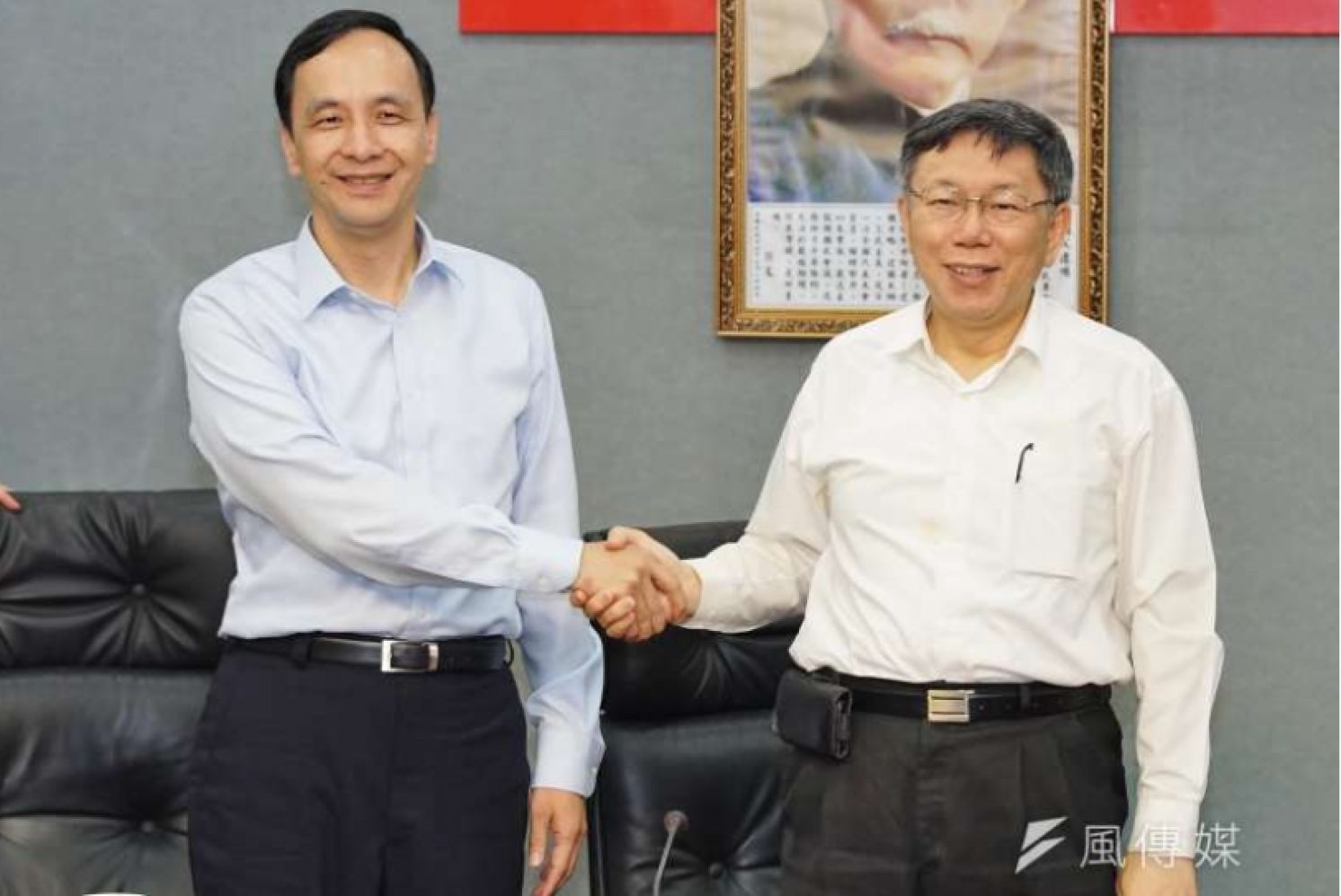
In Last Mile to Unshelve DPP, Internal and External Challenges Remain for KMT
China Times Commentary, November 27, 2022
In the 2022 local elections, the ruling Democratic Progressive Party (DPP) suffered another major setback. One last mile remains before the DPP steps down in the 2024 presidential election. The opposition Kuomintang (KMT) is fully committed to winning the 2024 presidential election, whereas Chairman Ko Wen-je of the Taiwan People’s Party (TPP), also announced his presidential candidacy. However, there are still challenges for the KMT and TPP to end DPP’s eight-year chaotic regime.
As the largest opposition party, the KMT has lost its advantage in its cross-strait relations, the economy, and talent that it used to win elections in the past. Since 2016, the KMT’s cross-strait advantage has become its major burden. Whenever a central election took place, if the DPP proclaimed “resist China to protect Taiwan,” the KMT would lose terribly.
Even though the KMT has held an advantage in northern Taiwan, it has little power in southern Taiwan. The KMT may have done well in Pingtung and Tainan in this election, but it was only because the DPP was divided within the party. Whether the KMT can continue to break through and gain more votes from south of Yunlin will affect the KMT’s prospect of returning to power in 2024.
Compared with the DPP, the current KMT has a more concrete vision and a reliable ability to govern. The party is essentially more democratic and diverse. However, the KMT will have to face the rise of Taiwan-centric identity and character as an “island nation.” Being on the right side of the spectrum, if the KMT wants to return to power, it will have to end the disunity within the party and the tendency towards shortcut politics.
This election is like a midterm exam for the DPP. Its major defeat in the election is, to some extent, the voters giving a summary of the DPP’s performance in the past period. After the DPP reflects and reviews its defeat, it may trigger a swing effect that prompts DPP to victory in 2024. That is a problem that the KMT must also consider for the 2024 general election.
As for the TPP, after the recent nine-in-one election, they lost its power in the capital city of Taipei and only won in Hsinchu City, with a population of just over 400,000 people. The TPP will have to expand its base area and plan for the 2024 election. However, under the single constituency voting system, it is impossible for the TPP to win. Even its victory in Hsinchu is due to the KMT’s abandoning Hsinchu, which was favorable to the TPP. It seems that Ko will have a supportive role the moment he appears on stage in the 2024 election.
Judging from the experience in 2018, the KMT’s winning the local elections does not equate to returning to political power in 2024. If the KMT would like to take down the DPP, then it must take careful steps and try its best to unite party members and other friendly parties to increase its chance of winning.
The KMT and TPP must cooperate in the 2024 election and not let the DPP take all the benefits again. However, the process of cooperation means exchanges and sacrifices. How the two parties negotiate and proceed with their talk involve many variables that concern real interests. To take down the DPP in 2024, the trial period for KMT and the TPP to cooperate has just begun.
From: https://www.chinatimes.com/newspapers/20221127000322-260118?chdtv